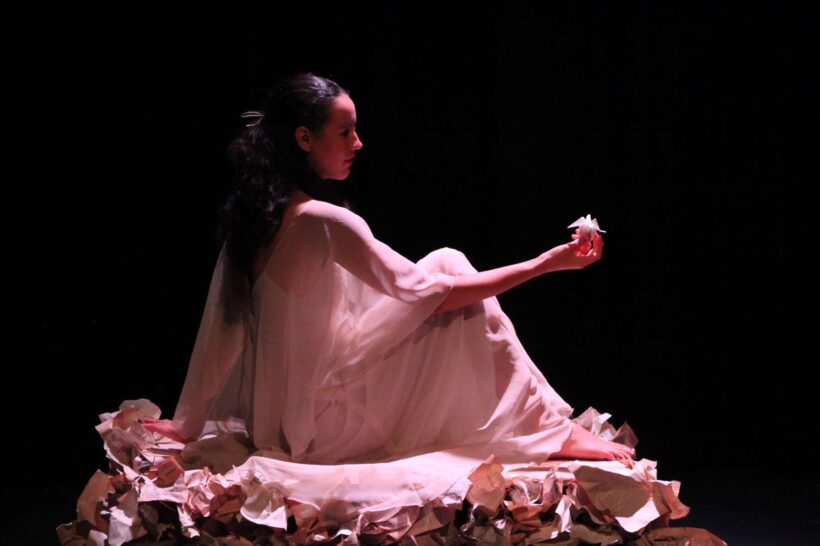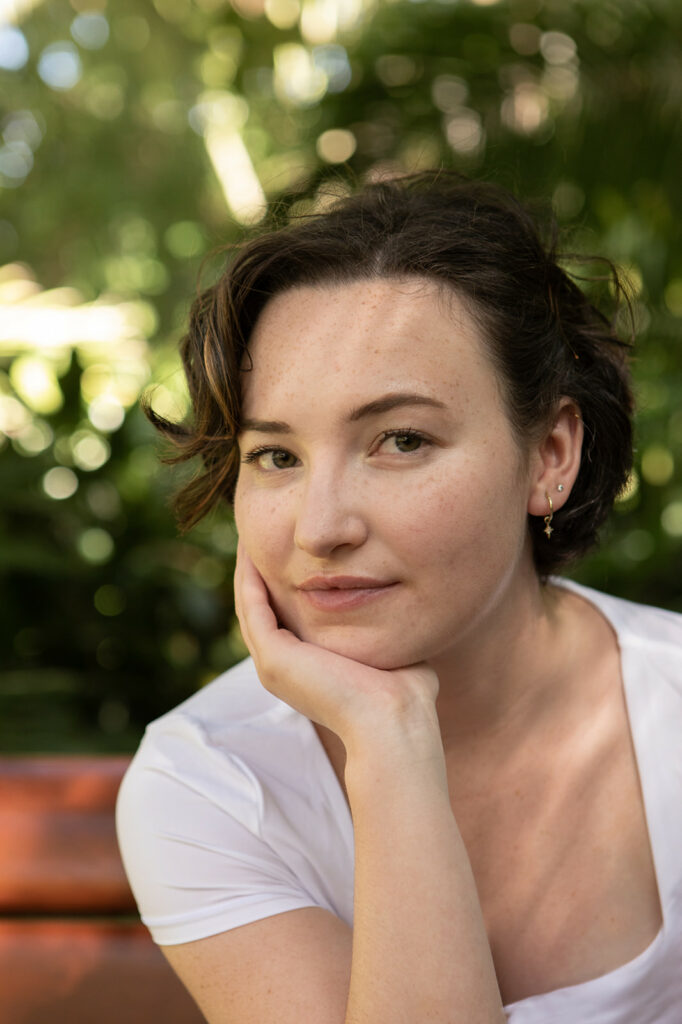Freelancing Artist Samara Louise Shares Her Story
The 2020 pandemic has brought anxieties to students and those beginning careers in new fields about what the future will look like for them. Aspiring artists – particularly performers, visual artists, vocalists, writers and videographers – in a field previously facing financial difficulties, are unsure how to tackle these challenges. While many turned to creative media for entertainment and comfort during the peak of lockdown periods, these restrictions also led to an increasing lack of job security for creatives. Emerging multifaceted artist, Samara Louise, shares her experiences of how her career has fluctuated from the worst effects of COVID19 in Australia.
Louise is a 23-year-old Meanjin (Brisbane) based Freelance Creative Artist, with specialisations in stage management, directing, acting and writing. Alongside her practice, she is halfway through the Bachelor of Fine Arts (Drama) program at Queensland University of Technology. She is the author of The Love That Remains, published in 2022, and is a featured singer in Heart Says No and Pockets written and produced by MKMGA. Currently, she is an assistant director for Ad Astra play Top Girls and writing a play called Set Me On Fire. Recent productions include her directorial debut in Very Still & Hard to See (2023), her stage manager role in The Violent Outburst That Drew Me To You (2022) and performance in the role of ‘Robin’ in The Last Poem (2022).
Pressenza: Can you provide some context on what you do as a Freelance Creative Artist? What is a day in the life like for you?
Samara Louise: I am a theatre-maker, vocalist and writer. The term ‘theatre-maker’ basically means I do a lot of different things in theatre – I’m an actor and director as well as doing production roles like stage management. No two days are similar for me, so, it’s hard to answer that question.
PZ: How long have you been a Freelance Creative Artist for?
SL: I’ve been writing properly for about five years; creative and non-fiction forms. I started my Creative Writing degree in 2019 at Mcquarie University. Last year in November I self-published my debut poetry book, The Love That Remains. Singing, I’ve been doing professionally since 2017 when I started doing live performances. I’ve been recording music for two years, my first single was Heart Says No and my second was Pockets, which was released just this year. I began doing theatre pretty much immediately after I graduated high school in 2018, and professionally in the last two years.
PZ: How have your experiences studying and working in the creative industry shifted before, during and after COVID19?
SL: Before COVID, it was a lot easier to abide by health and safety regulations within theatre especially. People were a lot more frivolous with them, which could be seen as both a positive and negative. I remember being expected to come into work if you just had a little sniffle, even if you weren’t performing. Whereas now, that can’t be an expectation anymore in the off chance that someone might have COVID. During COVID19 was when I completed my six-month long journalism internship at Happy Magazine in Newtown, Warrane (Sydney), I would do one day a week in the office; the rest was work from home.
PZ: That would’ve made it harder for you to learn, if the internship was originally designed to be conducted completely in person, I’m guessing?
SL: Yeah, it was difficult because it’s easier to bounce ideas off people, have people quickly check things and such if it’s in person. So, I found that really, really difficult.
PZ: How was your experience as a theatre-maker affected?
SL: During COVID, online musicals were quite popular, and I could never quite get on board because although it was easy to conduct auditions and kind of do rehearsals, trying to stitch it all together was challenging.
PZ: How did the final product of those musicals look?
SL: People would end up just recording their parts in their bedrooms or somewhere in their house with good acoustics. We tried to maintain the same level of acoustics for everyone, and we all needed to have a white background.
PZ: Wow! That really would’ve taken away all the other roles like set design, lighting and costume design.
SL: Absolutely! We could still sort of do costuming but it definitely took you out of the play world and put you into the real world. It was also unrealistic. Asking everyone to have a white background as the most plausible option is so boring for the audience but at the same time everyone just sitting wherever they’re comfortable is too distracting. In 2021 when we were first coming out of COVID, I was in a High School Musical live production held in Warrane (Sydney). And leading up to our performance dates it was about to be the second major lockdown we had in New South Wales and that was difficult, because it changed the audience numbers we could have. When restrictions first ended it was really hard to find work but since it’s been a little while things have sort of improved.
PZ: Has working in your field straight after major restrictions ended been harder than during it? I feel like the main issue now is no one knows what each day is going to look like and how to tackle the long-term effects.
SL: While online musicals were held, it cut a lot of expenses because the venue is the costliest part of putting on a production. People adapted because it was financially easier to produce a show online whereas when we first came out of COVID the seating capacities for theatres were not enough to fill out the budget. We only received half of the earnings goal most of the time. This led to not a lot of shows being produced because it wasn’t financially viable so therefore there was no work. So, essentially, it was actually easier to find jobs during COVID than straight after.
PZ: Has COVID19 and being in lockdowns changed the way you’ve interacted with other creative media yourself?
SL: I was watching a lot more filmed media which made me consider things from a more filmic point of view, something which has been good and bad. It has been more eye-opening for a different perspective but has in some way clouded my understanding of theatre. Now when I write plays, I find it harder to look beyond the way that you write a screenplay compared to a play because they’re two very different things. Now I picture things as a film more than a live production, which I don’t think I ever did before COVID. When it comes to writing in general, though, I wrote a lot more during lockdown periods, but it wasn’t necessarily inspired by anything as I was only writing because I had nothing else to do. Now I don’t have as much time, yet more to write about.
PZ: Do you believe you’ve received adequate support in your career after the detrimental effects of COVID19?
SL: Not specifically, however other emerging artists who have managed to make it to the other side have banded together to create work opportunities for each other.
PZ: Finally, what advice do you have for other emerging artists dealing with the issues COVID19 has brought for the creative community.
SL: If you can’t find opportunities – create them.











